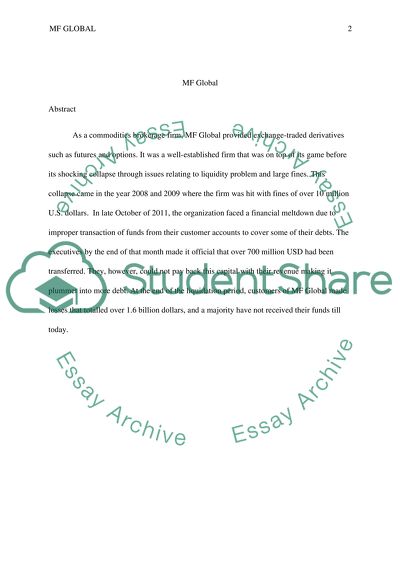Cite this document
(“MF Global Research Paper Example | Topics and Well Written Essays - 1250 words”, n.d.)
MF Global Research Paper Example | Topics and Well Written Essays - 1250 words. Retrieved from https://studentshare.org/finance-accounting/1469381-mf-global
MF Global Research Paper Example | Topics and Well Written Essays - 1250 words. Retrieved from https://studentshare.org/finance-accounting/1469381-mf-global
(MF Global Research Paper Example | Topics and Well Written Essays - 1250 Words)
MF Global Research Paper Example | Topics and Well Written Essays - 1250 Words. https://studentshare.org/finance-accounting/1469381-mf-global.
MF Global Research Paper Example | Topics and Well Written Essays - 1250 Words. https://studentshare.org/finance-accounting/1469381-mf-global.
“MF Global Research Paper Example | Topics and Well Written Essays - 1250 Words”, n.d. https://studentshare.org/finance-accounting/1469381-mf-global.


